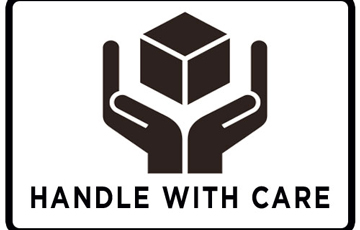Ground handling warning
27 / 02 / 2015

THE GROUND handling industry must jettison masses of unnecessary complexity if it truly wants to make seismic changes to the way it operates, writes Thelma Etim, deputy editor.
Integrating and streamlining processes to cut transit times by 48 hours, such as the paper-heavy Service Level Agreement (SLA); communicating better with customers in order to provide them with bespoke quantitative and qualitative, speedy services; and embracing digitisation, will increase competitiveness in the long run, says David Ambridge, general manager of cargo, Bangkok Flight Services and a member of IATA’s Cargo Operations Advisory Group (COAG) committee, which was established to bring airlines and ground handling agents (GHA) together to develop best-practice.
“One area we looked at is the Service Level Agreement and I think these are far too complex. We actually had a new record: one presented to us recently was 42-page pages long,” he reveals exasperated.
“What we have tried to do in COAG over the last two years is to remove such complexity from our business because what we do is actually very, very simple. Yet we have become disjointed over many decades and we need to change.,” he asserts.
“Change is good, but we just don’t like it very much in the cargo industry. If we want to be successful in the next five or 10 years then we need to understand what we want to achieve and really talk about customers because we don’t talk to our customers enough.
“Instead, we have these barriers which we have built up over many, many years and they need to be broken down so that we can really start to talk to each other, embrace the world of e-commerce, Alibaba, Amazon and ebay, and get those things on our aircraft and not just on those of the integrators.”
Thilo Schafer, vice-president of global handling management at Lufthansa Cargo, echoes his comments, warning: “I firmly believe digitisation is hopefully part of our bright future. What is most important and where we are lacking most is data quality, data integrity, data transparency and transparency along the supply chain. In our fragmented chain we do not have it, so we cannot satisfy the customers’ needs for the time being. If we do not provide this, others will."
He points out that Lufthansa Cargo’s operations “are all geared towards customer satisfaction. It’s all about having our shipments under control.”
Schafer argues that reducing the time cargo spends on the ground is possible citing a joint project the cargo carrier conducted with a ground handling agent, where it reduced the waiting time from 37 minutes to 20 and the processing time from 36 minutes to 31, equating to a 30 per cent reduction in the overall time wasted.
He also underscores how the supply chain is riddled from end-to-end with time-wasting – because of the way data is unnecessarily repeatedly captured (the paper airwaybill). “We actually capture the same data nine times – this is ridiculous,” he argues. “We actually implement human errors at every stage of the supply chain. I have been in this industry for 20 years and the advancement in 20 years has been very little.
“The e-AWB is the first step and if we do not take this first step, then we won’t take the second step and we will never arrive at 100 per cent e-freight.”
Schafer also believes the industry must adopt a zero tolerance approach to achieving “100 per cent data quality with no exceptions".
“We need to integrate our IT solutions. I don’t want to see people keying in ULD numbers – that is ridiculous, that is the past. A fragmented industry is not moving forward and is a little dysfunctional,” he concludes. “Digitisation is not for its own sake, it is for customer satisfaction and our own better margins.”














